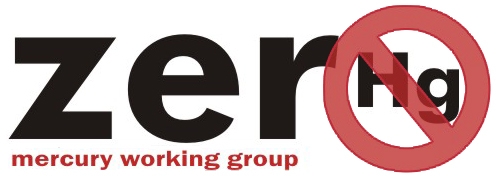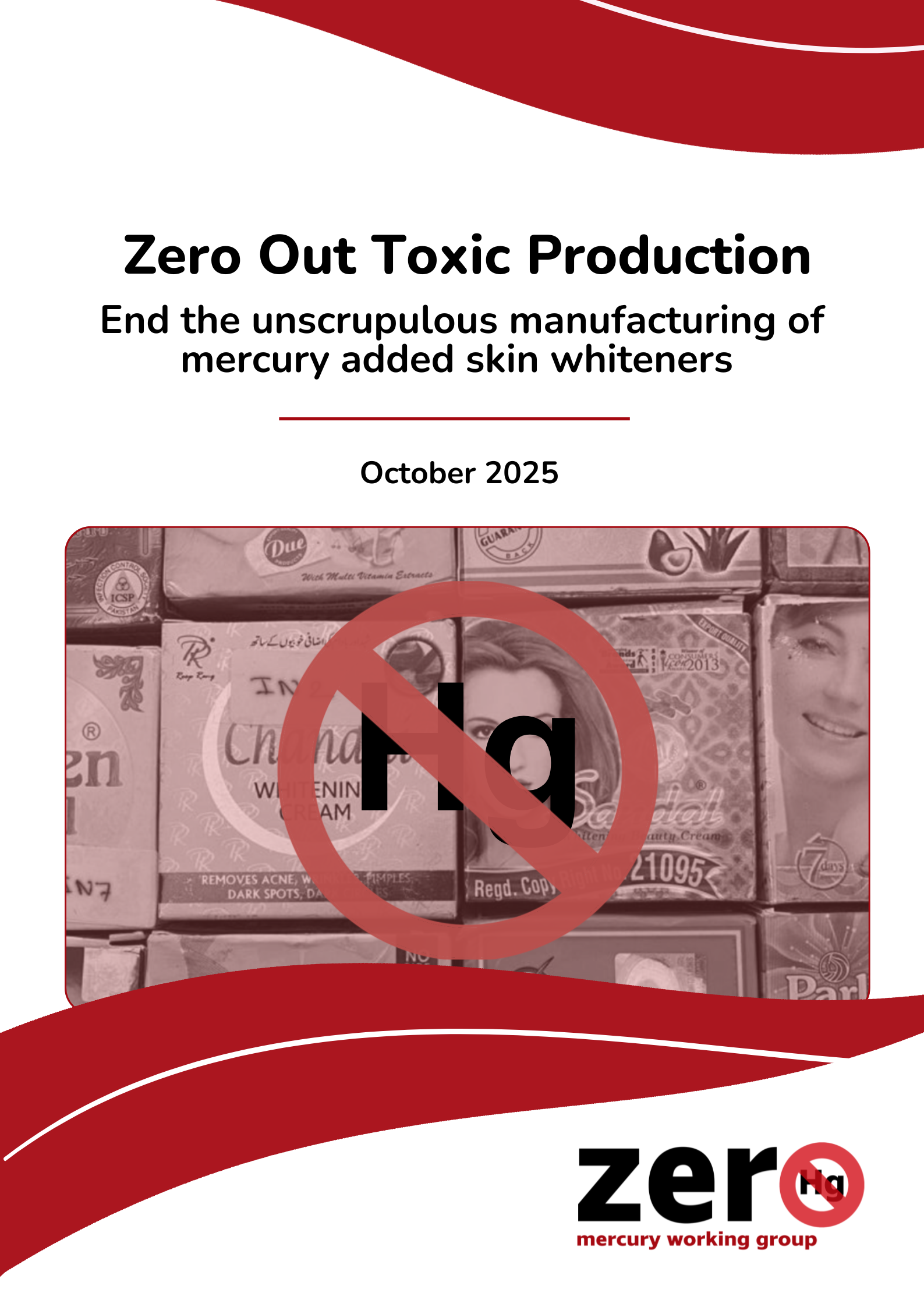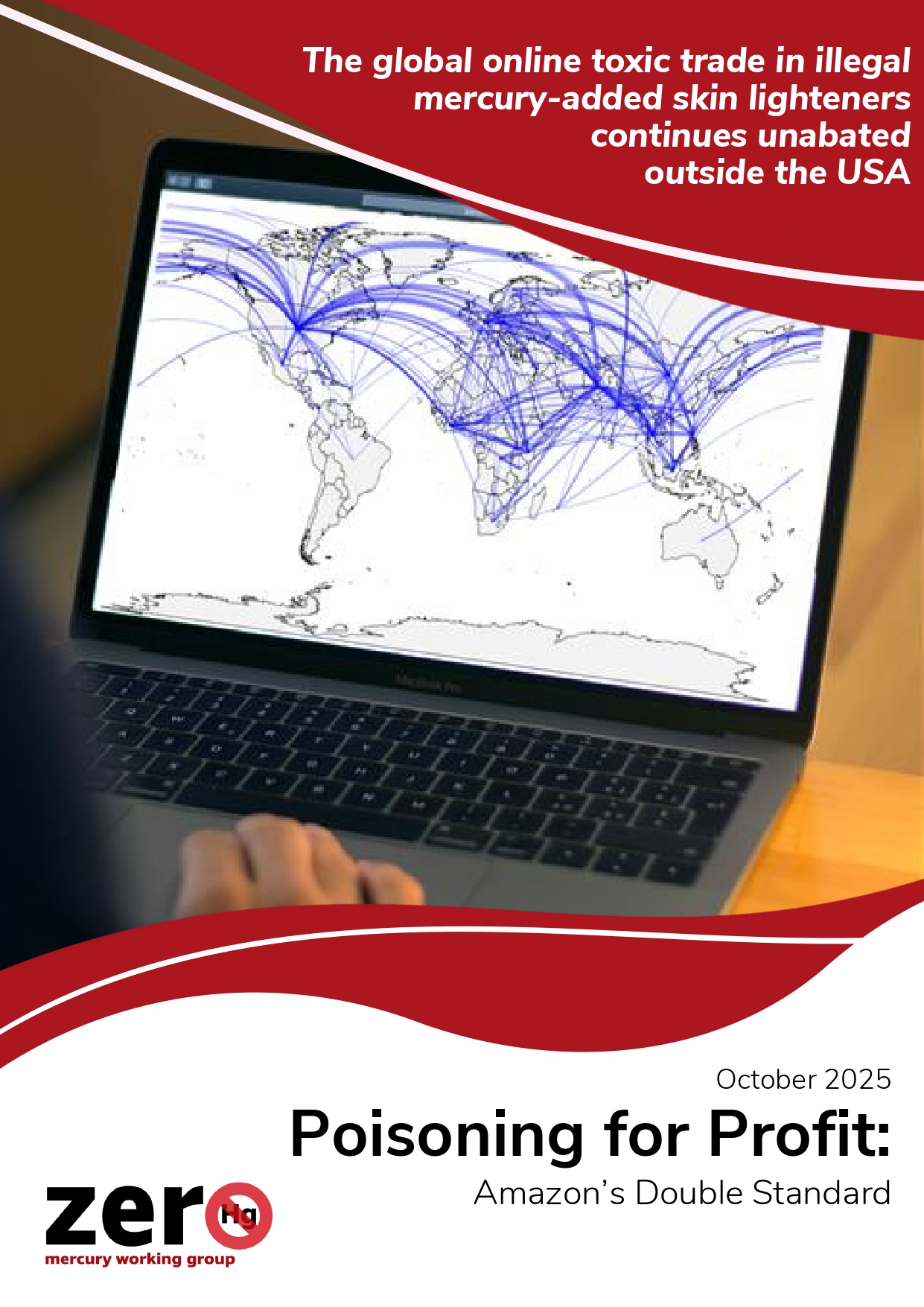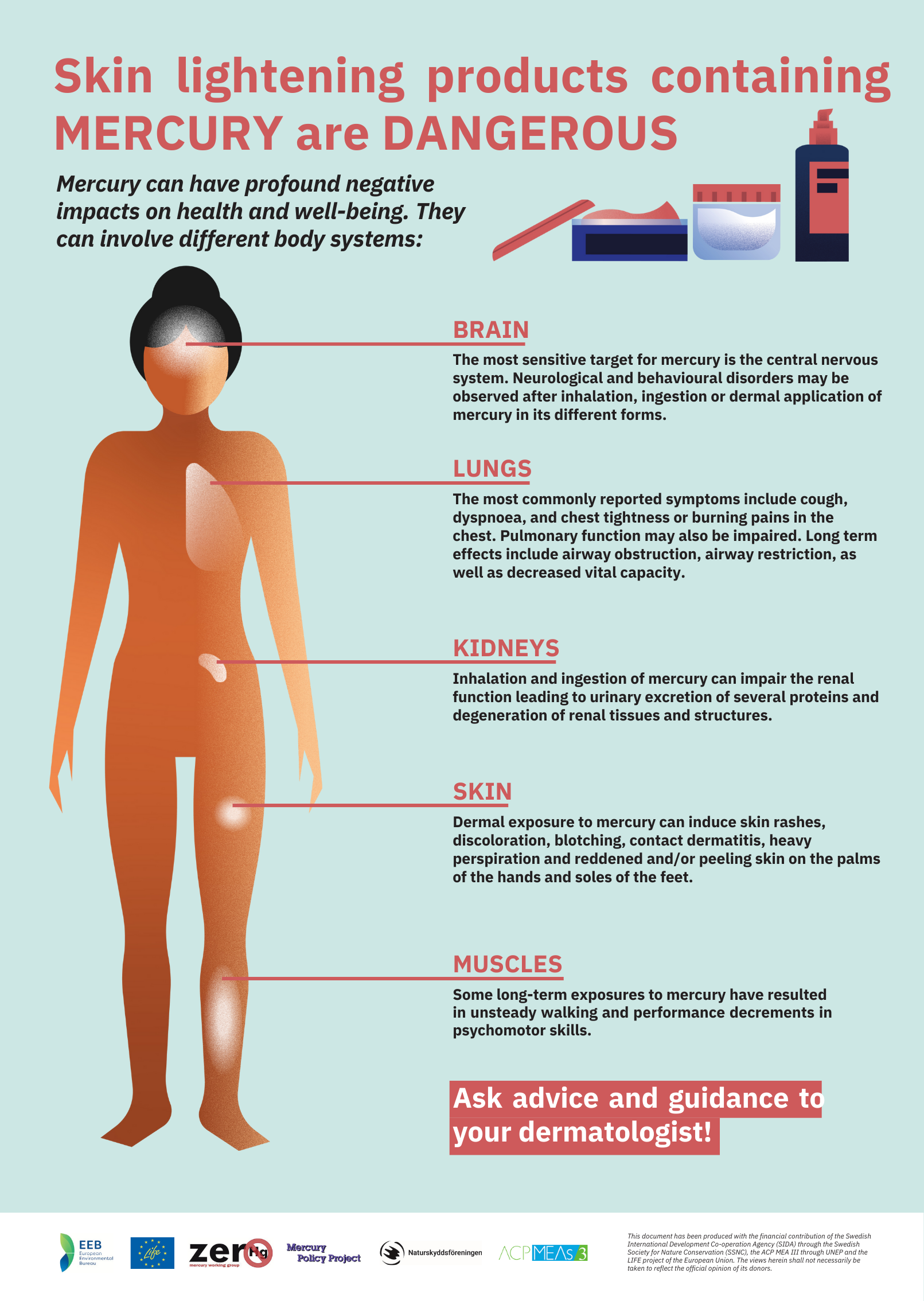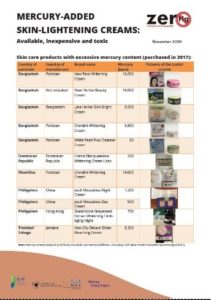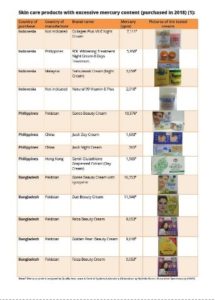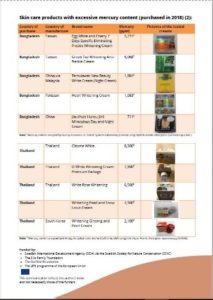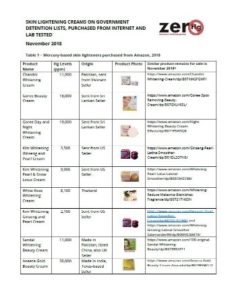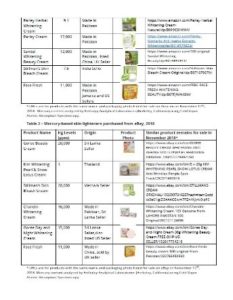Mercury-added cosmetics pose a serious threat to human health and the environment. Yet they continue to be manufactured, traded, and used worldwide.
The ZMWG started this global NGO campaign, with funding from the Swedish Society for Nature Conservation (SSNC) via the European Environmental Bureau (EEB). The focus of the campaign is in support of national government efforts to ban the manufacture, import, export and use of mercury-added cosmetics. This effort is in line with the Minamata Convention provisions in general support of listed product bans. The campaign started in 2017 and will be continuing until 2026.
In the framework of the project, a ZMWG skin-lightening cream working group has been formed.
The toxic trade of often illegal mercury-added skin-lightening products is a global crisis expected to only worsen with skyrocketing demand, especially in Asia, the Middle East and Africa.i
Our online database
Mercury Finds in Skin-Lightening Products
The online database is an addition to the ZMWG Mercury-Added Skin-Lightening Creams Campaign. It compiles results from the group’s past sampling and testing as well as data from official sources such as EU Safety Gate, the European Rapid Safety Alert for dangerous products, the ASEAN Post- Marketing Alert System and various nation’s government ‘detention lists’.
Our reports
Zero Out Toxic Production: End the unscrupulous manufacture of mercury-added skin whiteners (October 2025)
ZMWG urges COP-6 to take decisive action to end toxic production at the source
This report underlines the importance of regulating and adequately monitoring the manufacturers of these products. ZMWG and its partners from Pakistan, Kenya, the Philippines, and the United States purchased and tested samples from six widely available brands of skin whitening creams (SWCs) made in Pakistan, as per their packaging: Faiza, Golden Pearl, Goree, Aneeza and Face Fresh and Parley. Almost all of them contained mercury. ZMWG estimates that more than 66 million mercury-added skin whiteners are produced annually, using over 110 metric tons of mercury compounds, with Pakistan, Thailand, and China together accounting for over half of global production.
Poisoning for Profit: Amazon’s Double Standard (October 2025)
Outside the U.S., the toxic trade in illegal mercury-added skin lighteners continue unabated
In a new report published in October 2025, the Zero Mercury Working Group (ZMWG) exposes Amazon’s double standard in addressing the global sale of mercury-added skin lightening products (SLPs). Despite a recent U.S. legal settlement requiring Amazon.com to halt such sales within the United States, similar safeguards have not been extended to its international platforms.
Building on previous investigations, market surveillance in six countries found that mercury-laden SLPs are still easily purchased on Amazon from Mexico, India, and the United Arab Emirates, and to a lesser extent in France and Belgium, while far fewer were detected in the U.S.
Laboratory testing of 31 SLPs purchased confirmed dangerously high mercury levels in 25 samples, with some exceeding 27,000 parts per million.
Mercury in Retrograde (October 2023)
The Environmental Investigation Agency (EIA) carried out undercover investigations in three different regions (Asia, North America, and Europe) and was able to confirm the continued production, trade, and sale of mercury-added SLPs. EIA obtained compelling evidence from seven companies in three countries that they intentionally add mercury into SLPs, in violation of the Minamata Convention on Mercury. The investigation revealed it is common practice for SLP producers across the globe to create creams consisting of 3-4% of a mercury compound. Detailed discussions with company executives make clear that these are not isolated incidents but instead represent common practices across the industry. Those who trade in mercury compounds are able to operate with impunity across jurisdictions. The results of the investigation are presented in Mercury in Retrograde, which examines the tactics and systems of SLP producers, sellers, and traders, and some of the sources of the mercury that contaminate them, with a specific focus on SLPs applied topically.
Mercury and mercury compounds seep into land, water, and air, and are toxic to human health and the environment. EIA investigative findings underline the urgent need for the Minamata Convention to prevent the proliferation of toxic skin creams by strengthening the enforcement and compliance mechanisms for online and on-the-ground sales and combating the continued addition of mercury in SLPs. Parties must act domestically to ensure national laws comply with the Convention.
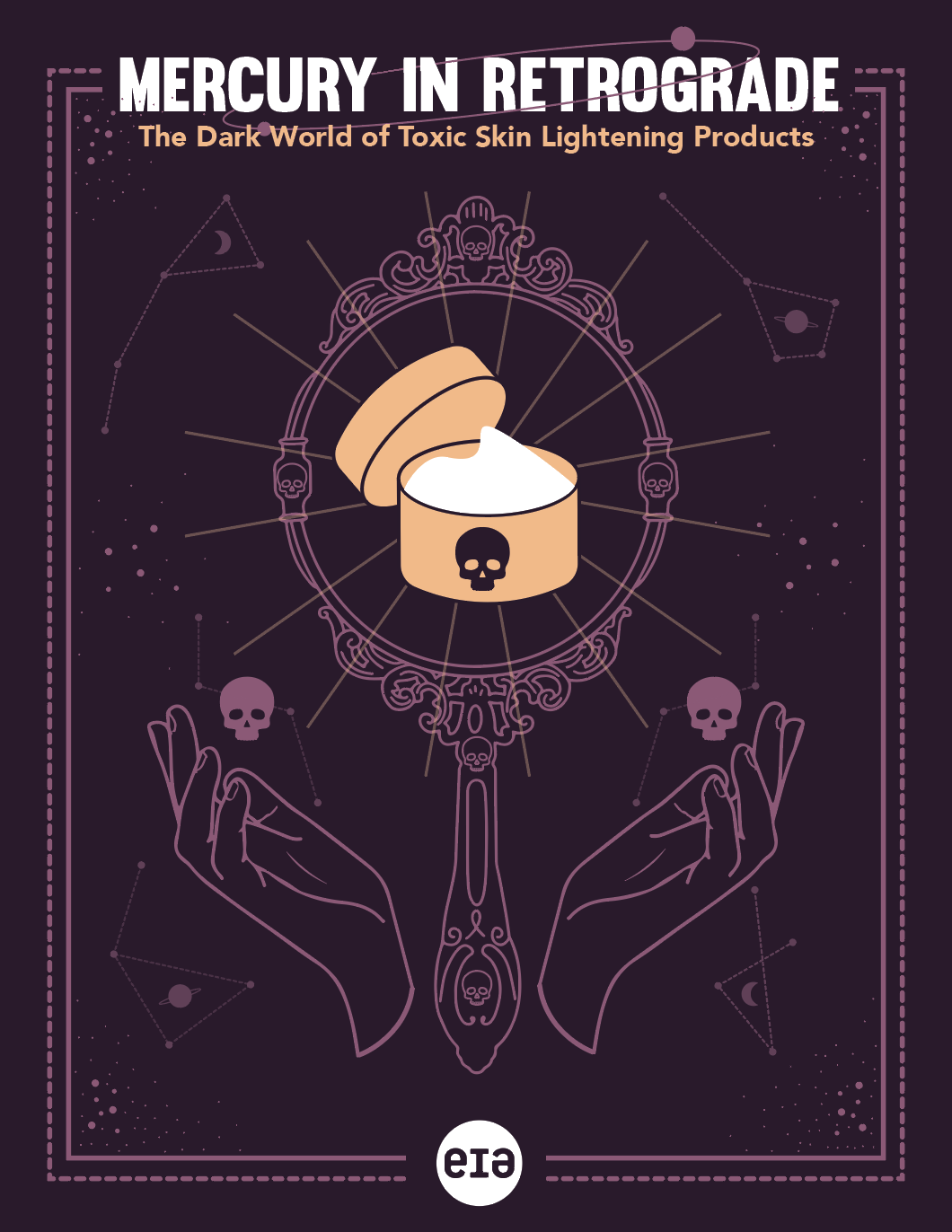
Online Marketing of Toxic Skin Lighteners: Mercury cosmetics marketed as a 'solution' to dark skin (October 2023)
This is the fourth global report by the Zero Mercury Working Group (ZMWG) since 2017 on market surveillance of skin-lightening products (SLPs) suspected to contain mercury.
Under this new investigation, a total of 213 SLP samples were purchased by our partner NGOs from 23 online platforms in 12 countries. Of the 213 SLPs purchased and analyzed, 191 (90%) were found to contain mercury levels that exceeded the widely accepted legal threshold of 1 ppm. The mercury concentration for these samples ranged between just over 1 ppm to 74800 ppm.
This report highlights the current lack of effective controls to prevent harmful and illegal mercury-added SLPs from being manufactured and offered online. This demonstrates the need for a more robust and coordinated international response, including additional restrictive measures, as discussed in the African Region’s proposed amendment to the Convention.
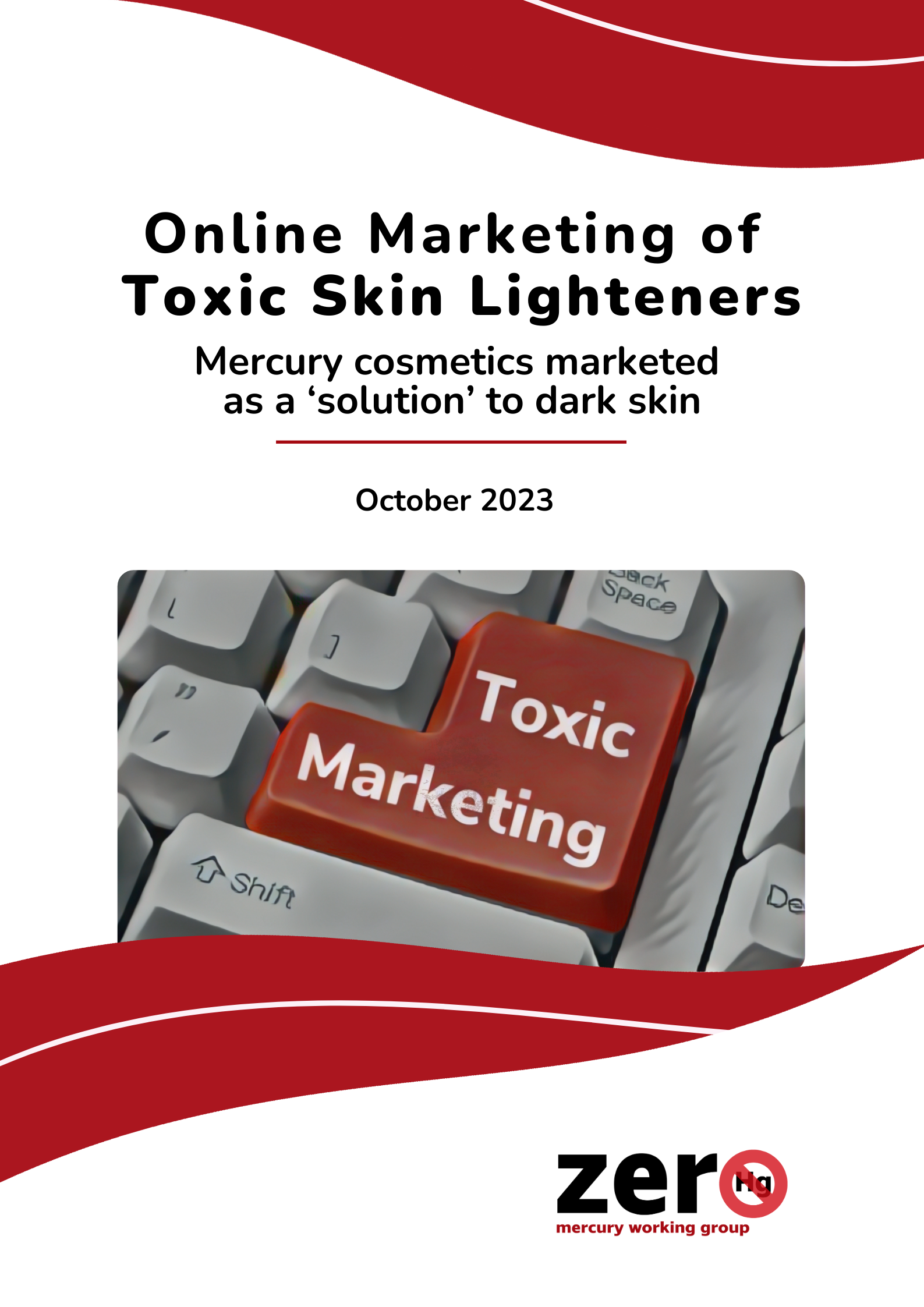
"Prime" Time to Stop Online Sales of Illegal High Mercury Skin-Lightening Products (Feb 2023)
Testing in autumn 2022, once again indicates that Amazon.com continues to allow the toxic trade of SLPs laced with mercury. 19 of 21 purchased creams were found to have mercury levels over 1 ppm, the legal limit set by the Minamata Convention and followed by countries around the world. The levels of mercury detected by the lab in those 19 SLPs ranged from 1.5 ppm to 8,500 ppm.
The Zero Mercury Working Group is calling on e-platforms to stop all sales of skin lightening products (SLPs) if they cannot stop the marketing of often illegal high mercury products. Amazon and other E-platforms, could, by being more vigilant, by consulting government, academic and civil society websites, and by due diligence in enforcing their own policies, better protect consumers from the health risks associated with SLPs.
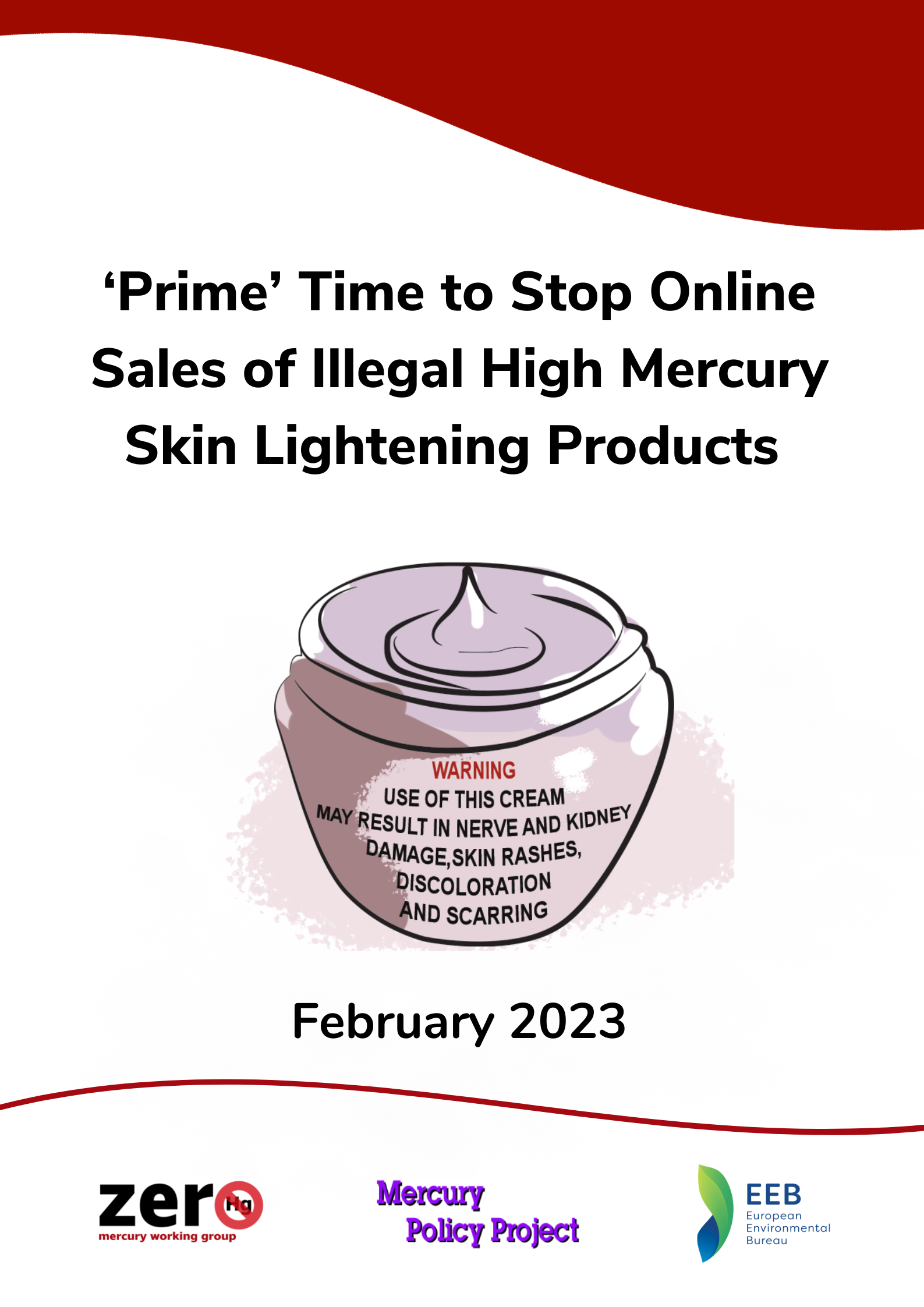
Skin lighteners still available online despite mercury findings (March 2022)
Extensive testing by ZMWG in 2020-22, once more confirms that internet platforms, such as Amazon, eBay, flipkart (along with many other online internet marketers worldwide), are selling toxic, dangerous and often illegal skin-lighteners that have been already identified by many governments around the world as over the legal limit.
In our new 2020-2022 ZMWG investigation and report “Skin Lighteners Still Online Despite Mercury Findings”, skin lightening products (SLPs) offered by over 40 online platforms, and accessed in 17 countries by our partner NGOs, confirmed yet again that high-mercury SLPs are widely available from a range of popular e-commerce platforms globally. Of the 271 SLPs tested, 129 were found to have mercury levels over 1 ppm.
Our 2020-2022 investigation also included regular monitoring over 13 months of e-commerce platforms in 15 countries to assess the ongoing availability of many of the high-mercury SLPs identified. Nearly all of the SLPs listed in our 2019 report with mercury levels over 1 ppm continue to be available from over three times as many e-commerce platforms as those targeted in 2019.
National governments should ensure that sales of products prohibited in stores are also prohibited online; and online platforms should bear the legal responsibility for ensuring that products sold on their platforms fully comply with health and safety laws.
CNN had an exclusive article about the report.
Mercury findings in skin-lightening products Online Database
The online database is an addition to the ZMWG Mercury-Added Skin-Lightening Creams Campaign. It compiles results from the group’s past sampling and testing as well as data from official sources such as EU Safety Gate, the European Rapid Safety Alert for dangerous products, the ASEAN Post- Marketing Alert System and various nation’s government ‘detention lists’.
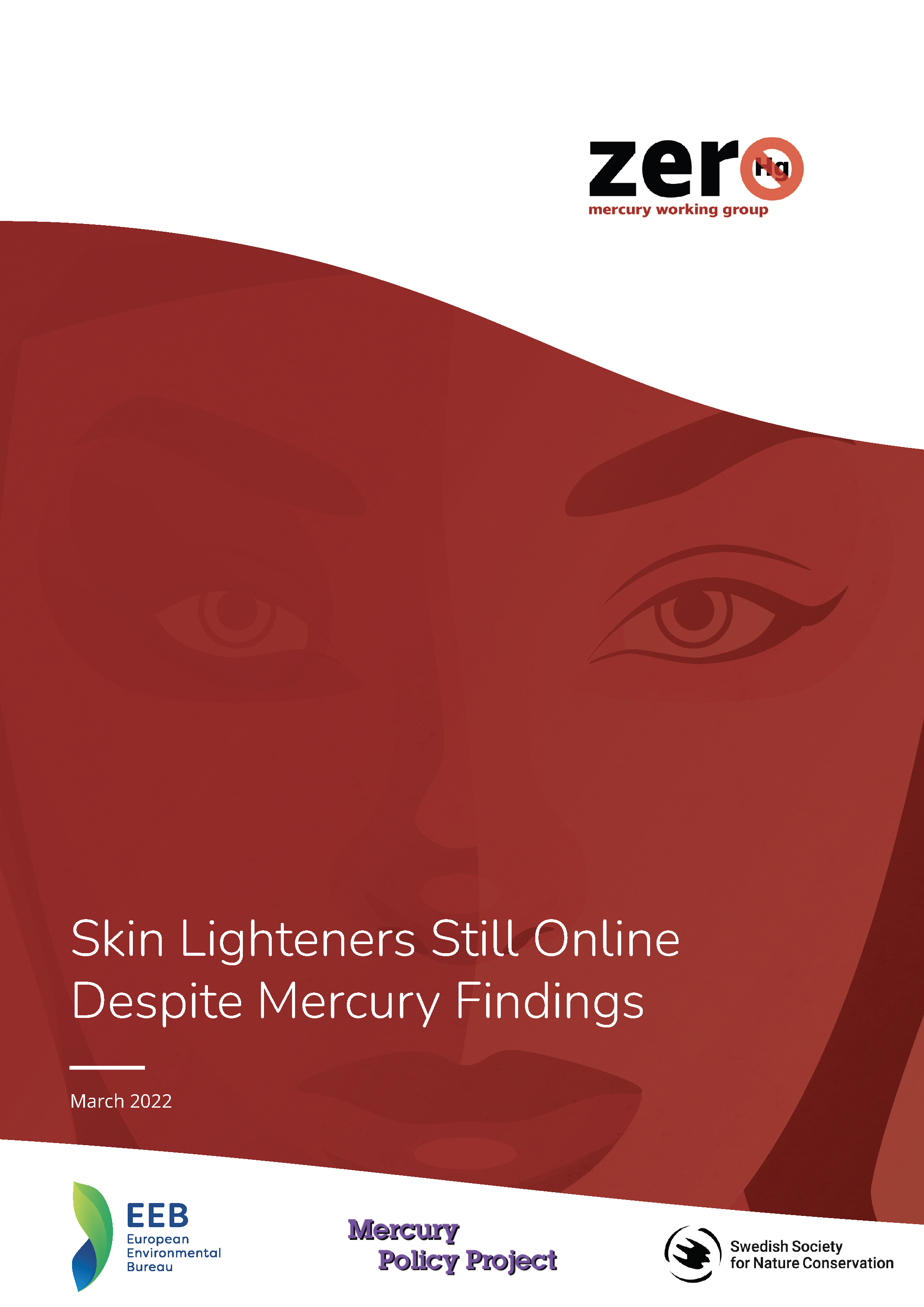
Download our posters!
Posters on the impact of mercury containing skin-lightening products on health and pregnant women are available below in three languages:
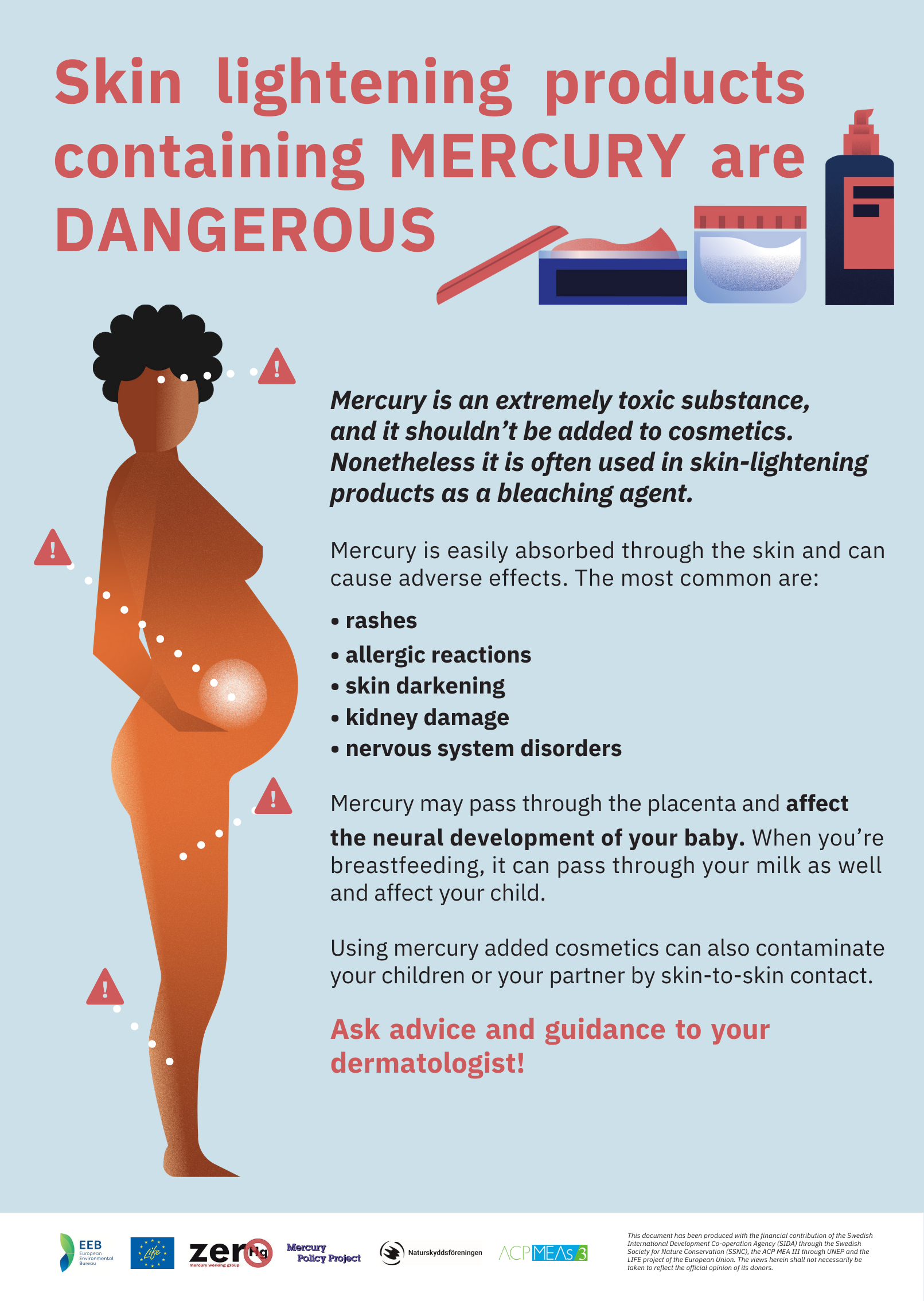
Dangerous, mercury-laden and often illegal skin-lightening products: Readily available for (online) purchase (2019 - Revised March 2022)
Extensive testing by ZMWG in 2019 (revised in 2022, again confirms that local markets and also internet platforms, such as Amazon and eBay (along with many other online internet marketers worldwide), are selling toxic, dangerous and often illegal skin-lighteners that have been already identified by many governments around the world as over the legal limit.
In our most recent testing study, "Dangerous, mercury-laden and often illegal skin-lightening products: Readily available for (online) purchase,” the collection of samples was carried out by members of the ZMWG in 12 countries. 166 samples were bought from both shops and large e-commerce platforms and 93 of them were found to violate the limit of one part per million (ppm) of mercury that many countries and the Minamata Convention have fixed as a legal limit.
Products with above one ppm mercury had mercury contents that ranged from 1.09 ppm to over 40,000 ppm. Sixty-four of the non-compliant creams (or 69%) were bought online.
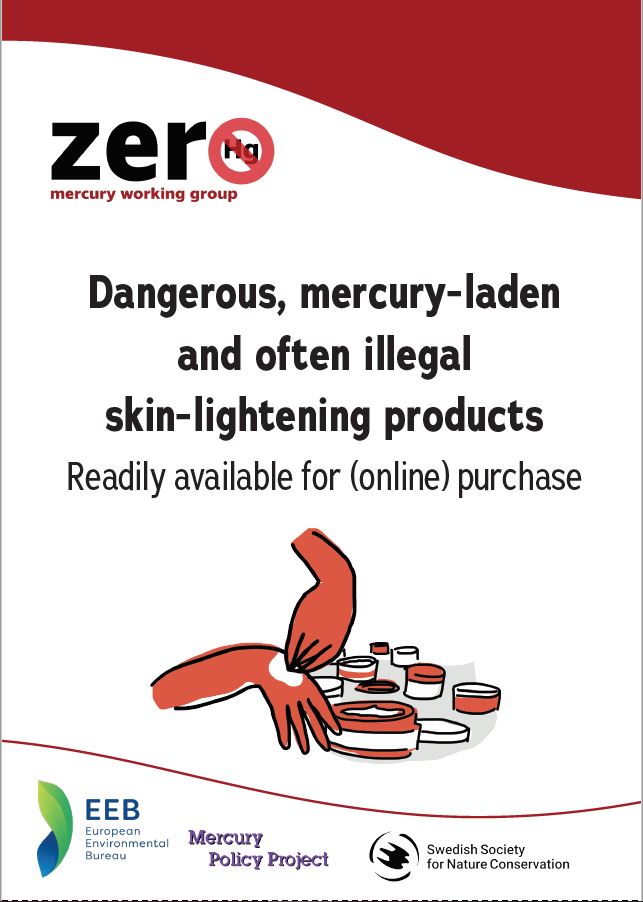
Our companion report, “Enforcement measures to restrict high mercury cosmetic products under the Minamata Convention,” suggests elements for improving enforcement of the Minamata Convention provisions for banning cosmetic products with mercury levels over one ppm. It also presents a field survey of the systems and strategies in eight countries where the ZMWG has member organizations.
This report needs to now(2021) be seen together with a need for measures to ensure third party liability especially for internet traders as expressed by the Joint call by business, consumer and civil society organisations on the Digital Services Act (DSA): Effective and unambiguous rules are needed to tackle illegal activities and rogue traders, 11 October 2021. Liability reform is recommended as the cornerstone of a strategy to eliminate illegal internet sales, since it is the best policy mechanism for promoting actions by internet platforms to prevent the products from appearing on their platforms in the first place. The mechanisms mentioned in the enforcement report are complementary to liability reform.
The executive summary of the 2019 reports is available for download here.
EEB/ZMWG Press release 27 November 2019
During COP3 of the Minamata Convention, the ZMWG hosted a side event to showcase the results of the campaign during 2019. Our campaign partners from BanToxics in the Philippines, ESDO in Bangladesh, and BeautyWell in USA presented their experiences in obtaining samples and working with both local authorities and raising awareness among communities using these products.
EEB/ZMWG Press release - December 2019
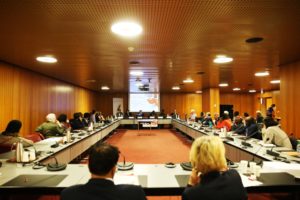
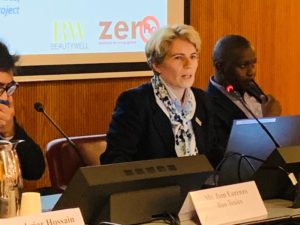
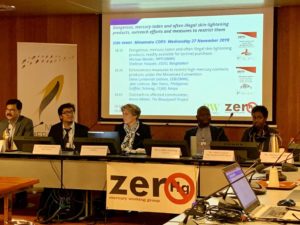
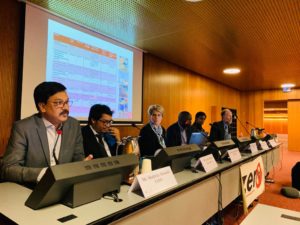
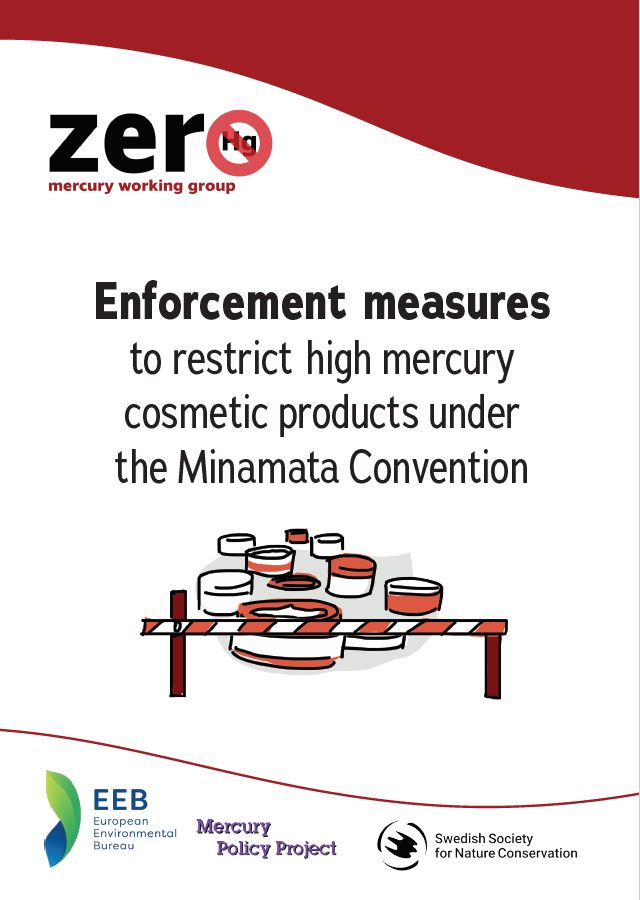
Mercury-Added Skin-Lightening Creams: Available, Inexpensive and Toxic (2017-2018)
Consistent with other research, the new Zero Mercury Working Group (ZMWG) study indicates that a significant percentage of skin-lightening creams sold worldwide contain dangerous levels of mercury.
In 2017 and 2018, 338 skin-lightening creams from 22 countries were collected by seventeen of our non-governmental organization (NGO) partners from around the world and tested for mercury. 34 creams (10% of the samples) had mercury concentrations ranging from 93 - 16,353 parts per million (ppm). These levels significantly exceeded not only the legal standard established by countries that regulate these products, but also the provisions set forth in the Minamata Convention disallowing after 2020 the “manufacture, import or export” of cosmetics with a mercury content above 1 ppm.
REPORT - Mercury-Added Skin-Lightening Creams: Available, inexpensive and toxic
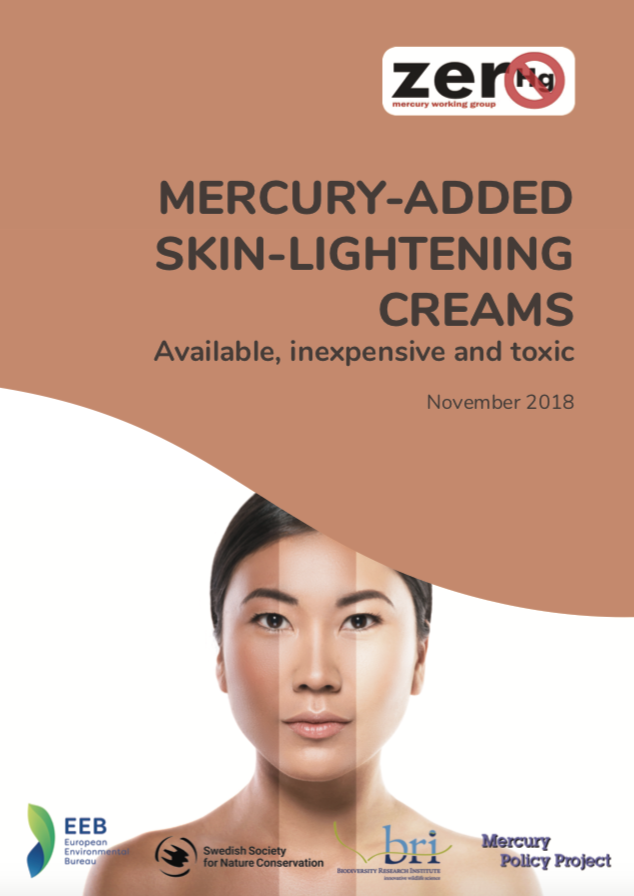
In a separate exercise, the Mercury Policy Project, the Sierra Club and the European Environmental Bureau purchased skin lighteners from eBay and Amazon websites. The brands purchased included many previously identified as high mercury by New York City, the state of Minnesota, the European Union, Singapore, UAE, the Philippines and many other national governments. Nineteen products had illegal mercury levels, typically more than 10,000 times higher than the legal threshold of 1ppm.
Over 50 civil society groups from more than 20 countries sent letters today to Amazon and eBay, calling on them to stop marketing illegal mercury-based skin lightening creams. In their letters, the groups are calling on Amazon and eBay to among others to ensure the products they sell comply with government regulations, develop and monitor lists of toxic skin lighteners and require prior sale approval for those to be sold.
Skin-lightening creams on government detention lists, purchased from internet and lab tested
EEB/ZMWG Press release 15 November 2018
https://www.sierraclub.org/articles/2018/11/call-action-internet-sellers-must-stop-toxic-trade
